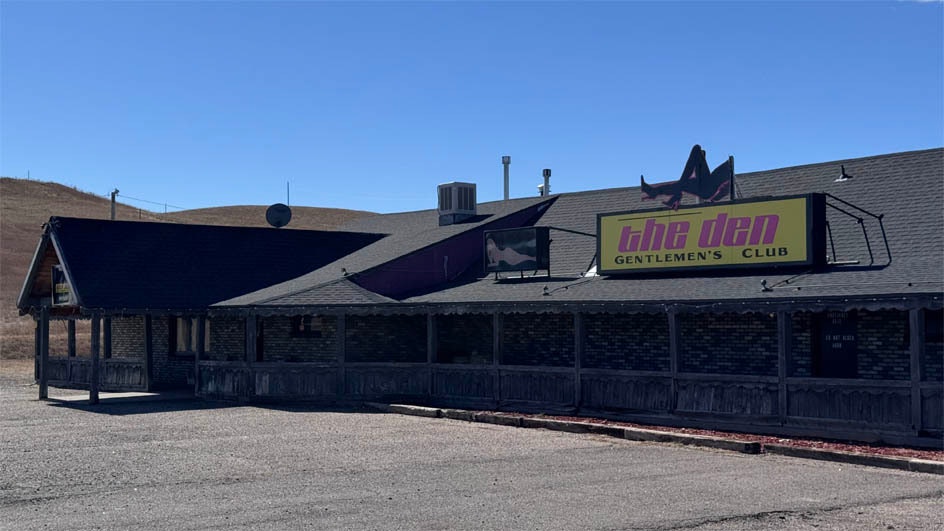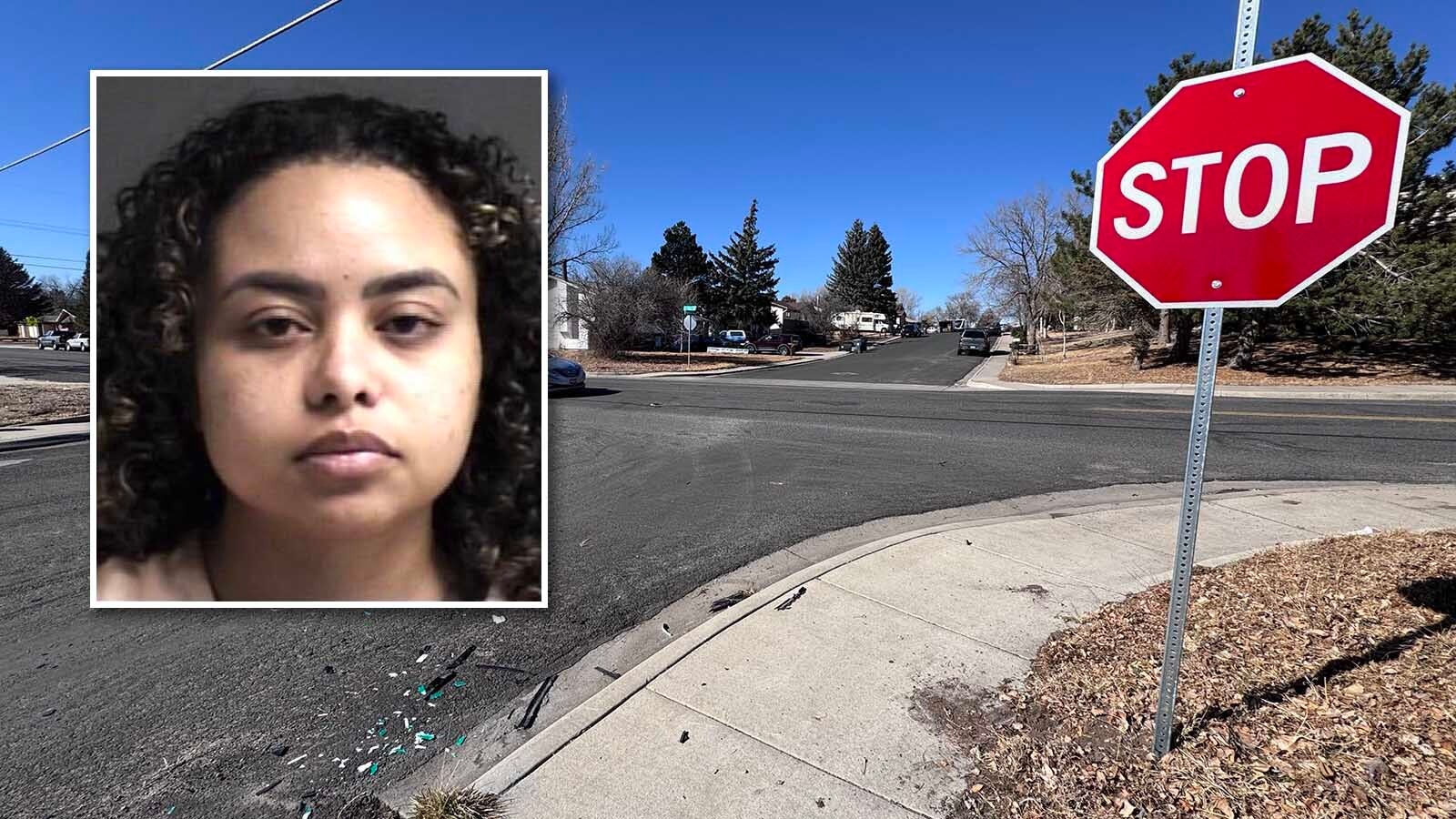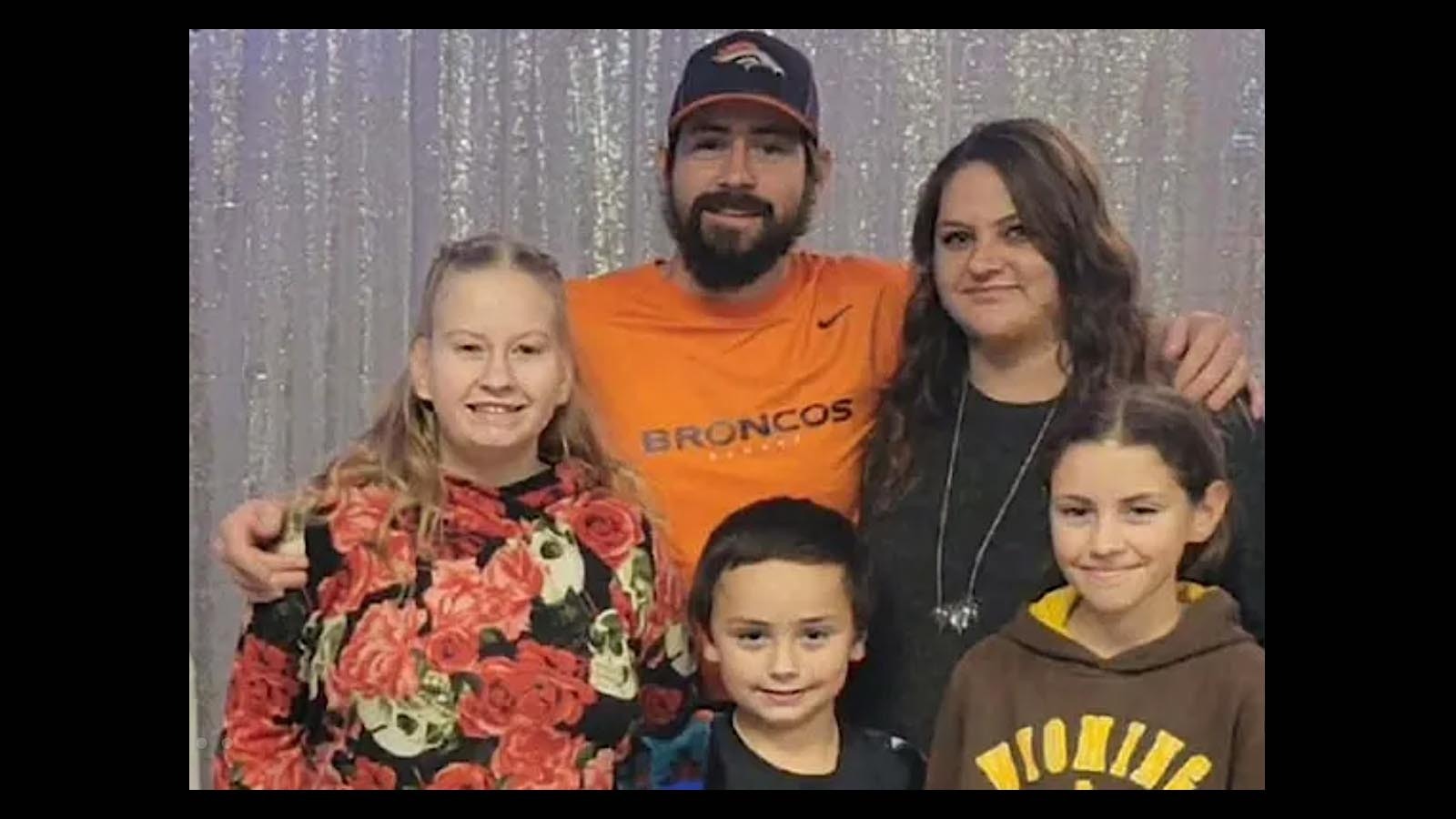A public defense attorney based out of Gillette, Wyoming, quit his job last autumn after a judge held him in contempt and fined him for being late to court.
The attorney said his tardiness was due to another hearing running longer than he’d expected and was beyond his control. His later resignation likely exacerbated a growing public defender shortage across Wyoming.
On Jan. 2, Wyoming Public Defender Brandon Booth told courts in that region that he was so short of defenders, his attorneys would soon be unable to represent people charged with low-level crimes. The courts reacted by urging private attorneys to volunteer, at a lower rate of pay than most are accustomed to, to serve people who can’t afford to hire attorneys.
Now Christopher Goetz, the public defense attorney who was charged with and convicted of contempt, is challenging his conviction as unlawful.
The Wyoming Supreme Court received his argument Tuesday.
That Busy Day
Goetz was having a busy day juggling hearings in multiple courts on Oct. 10, says an appeal brief by his attorney Mike Bennett, sent Tuesday to the state’s high court.
Goetz was representing a felony-level defendant named Jordan Borrego, who was scheduled for a 9:30 a.m. change of plea and bond hearing that day in Campbell County District Court Judge Matthew F.G. Castano’s court.
The defender was also scheduled for a 9 a.m. preliminary hearing in Gillette Circuit Court, which handles misdemeanors. Though the preliminary hearing was set to end at 10 a.m., Goetz expected it to be a shorter process, a change-of-plea hearing, and he believed he could make it to both hearings, his brief indicates.
But the negotiations that would have led to a change of plea fell apart at the last minute – and the more time-consuming process of a preliminary hearing unfolded, Bennett wrote.
This Back And Forth
Meanwhile Judge Castano, a prosecutor from the Campbell County Attorney’s Office and the defendant, Borrego, were all waiting for Goetz in the district court.
Castano went into recess to try to find Goetz. He learned that Goetz was still in the preliminary hearing and that it wasn’t scheduled to end until 10 a.m., says his judgment order for Goetz’s contempt charge.
Goetz showed up in Castano’s court at 10:15 a.m.
“I apologize for being late, Your Honor,” said Goetz, according to a portion of the transcript included in his brief.
“You don’t apologize for being late,” Castano answered. “You knew this was set. You had a one-hour setting at 9 o’clock.”
In fact, the judge continued, the preliminary hearing even went past 10 a.m., which Castano knew from listening to it remotely, the brief relates from that discussion.
“You just displayed a cavalier attitude toward the Court, and you’ve done it before,” the judge added.
Why Not?
Goetz asked for the chance to explain his tardiness, and said he believed his 9 a.m. hearing would be much shorter because his negotiations in that case were geared toward a change-of-plea hearing. But those negotiations fell apart at the last minute, he said.
Instead of helping his client plead to a crime, he ended up cross-examining multiple witnesses on the stand, he indicated. After that, he had to argue about his client’s bond.
Castano noted that Goetz didn’t try to tell him about the change in plans.
“Your Honor… Once the proceedings began, I wasn’t going to pull my phone out to make any sort of indication when we’re in the middle of taking testimony from witnesses,” Goetz answered.
But Goetz could have asked the circuit court judge for a moment to step into the hallway, Castano countered.
“I could have, and I failed to do that,” Goetz answered.
“Why should this Court not hold you in contempt?” asked Castano.
“I would ask the Court not hold me in contempt, Your Honor,” said Goetz, adding that he’d given the best reason he could, and had expected to make it to Castano’s court on time.
He apologized again for being late.
Castano asked Goetz why he didn’t file a motion to reschedule Borrego’s hearing.
The answer, said Goetz, was because he wanted to resolve things for his client that day.
“Because I want Mr. Borrego to have his matter taken care of, for his bond issue to be lifted,” said Goetz.
Castano announced he’d hold Goetz in contempt of court and fine him $100. In a later judgement order Castano also ordered Goetz to write a letter of apology to the prosecutor.
“He did not ask anyone to inform the District Court of the situation… He knew he had overlapping hearings and (he didn’t) seek to continue either of them,” wrote Castano in a judgment order filed within Borrego’s case, against Goetz, later that day. “Mr. Goetz’s actions demonstrate a cavalier attitude toward this Court, the time and workload of opposing counsel and the time of his own client.”

The Issue That Isn’t The Issue
Goetz’s appeal brief isn’t about fixing the public defender shortage, though it references it.
In a Wednesday interview with Cowboy State Daily, he confirmed that he left the public defender’s office for another job after his contempt conviction, but he declined to say whether he left the job because of it. The incident “played a part” in the shortage, he conceded.
Nothing like this has happened to him before, Goetz told Cowboy State Daily.
He graduated law school at age 28, became a public defender in Wyoming right away and remained at that job for six years, he said.
Goetz’s brief references the difficulties of “an overburdened public defender office” striving to make hearings across multiple courts.
“Both recent and past events illustrate extraordinary staffing difficulties facing the Gillette Public Defender’s Office,” wrote Bennett in the brief. “Clearly, there was no reason or explanation Mr. Goetz could have given the district court (for being late) – short of perhaps his leg being caught in a storm drain – that the court would have accepted.”
Actually, The Issue
Bennett’s brief alleges that Castano’s contempt conviction was wrongfully placed because the judge didn’t file a new criminal case to wage it.
It distinguishes between civil contempt charges, where a judge penalizes someone to make him honor a court order, and criminal contempt charges, where a person is punished for having already disrespected the court.
For criminal contempt charges, judges need to start up a new case rather than tack the judgment onto someone else’s case, Bennett’s filing says, citing earlier Wyoming cases.
“Mr. Goetz’s contempt conviction is null and void for lack of jurisdiction,” Bennett wrote.
The brief also takes issue with Castano’s later written order, requiring Goetz to apologize to the prosecutor in addition to paying the $100 fine. It argues that where a written order adds more punishments than an oral order, the oral order should take precedence.
It concludes with what appears to be a half-serious, half-tongue-in-cheek request to the Wyoming Supreme Court:
“This Court must vacate the contempt conviction, return Mr. Goetz’s $100, and order the district court to write its own letter of apology to the Gillette field Office of the Wyoming Public Defender.”
The Others
Castano declined Wednesday to comment, in response to an email request from Cowboy State Daily. Wyoming judges generally do not comment to the press on pending matters.
Wyoming Attorney General Bridget Hill, whose office appears tasked with defending Castano’s contempt filing, also declined to comment, citing the case’s pending nature.
State Public Defender Brandon Booth did not respond by publication time to an email request for comment.
Clair McFarland can be reached at clair@cowboystatedaily.com.





